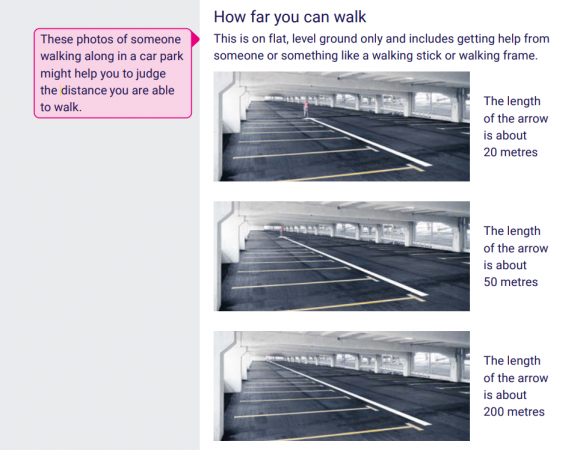Making our application forms accessible

When we designed Adult Disability Payment we committed to delivering a service for disabled people and those with long-term health conditions – that treats them with dignity, fairness and respect. Disabled people were involved throughout all stages of development to ensure their needs were at the heart of our design.
We consulted people who had experience of applying for Personal Independence Payment (PIP) and Disability Living Allowance. They shared their experiences with us and helped us shape our service, to help us deliver a more positive, compassionate experience of applying for disability assistance.
A key part of this work was improving application forms to make them more accessible and inclusive.
We carried out extensive user research and spoke to almost 1,000 people. We also engaged with stakeholders across Scotland including local authorities, Disabled People’s Organisations, and welfare rights advice services.
Our research found that people often had difficulty completing Personal Independence Payment applications forms, and found it difficult to answer questions to best describe the impact of their circumstances or condition. We also learned that people sometimes didn’t know what information was relevant when answering questions about daily living or mobility activities. These questions provide important information about how someone’s disability or health condition impacts their life, which is used to make decisions about what level of support they should receive.
Listening to people’s needs helped us redesign our application form to try and make the questions clearer, providing more detail about what information we are looking for, and indicating when questions not relevant to the individual can be left blank.
One of our key innovations in launching Adult Disability Payment was making the application form available online. This is the method that most clients prefer, although paper forms are still available. People can also apply in-person or over the telephone.
We also used pictures throughout the online application forms to provide additional information and useful examples, aimed at helping people understand the questions more easily.

Pictures give visual cues to remind clients of certain aspects of living with their disability which they may have normalised. They also help to break down the information, allowing them to know exactly what the question is asking. This is intended to help clients fill out their application form with as much information as possible so the right decision can be made about the support they should receive. We received positive feedback from clients during the research period including that the questions “put them at ease” and that breaking down the activity related questions was a “good way” of ensuring that all their needs were covered.

The main concern we had about our design was that in trying to breakdown the questions to make them more manageable, and by providing a lot of additional information, the application form had become very long. This wasn’t such an issue with the online form, but the size of the paper form could be daunting for some. Very careful consideration was given to each of the questions. We tried to achieve a very fine balance between the need for case managers to have enough information to make decisions and keeping the form from becoming unmanageable.
Now Adult Disability Payment is being delivered, we will take on board all of the valuable feedback we receive and keep working to try and get that balance right.
People can apply for Adult Disability Payment online, over the phone, by post or in-person. To find out more or apply, visit mygov.scot/adult-disability-payment or call 0800 182 2222

